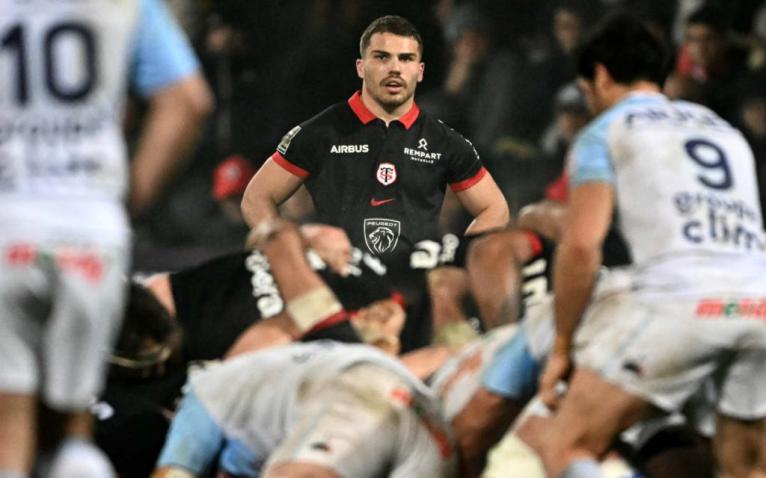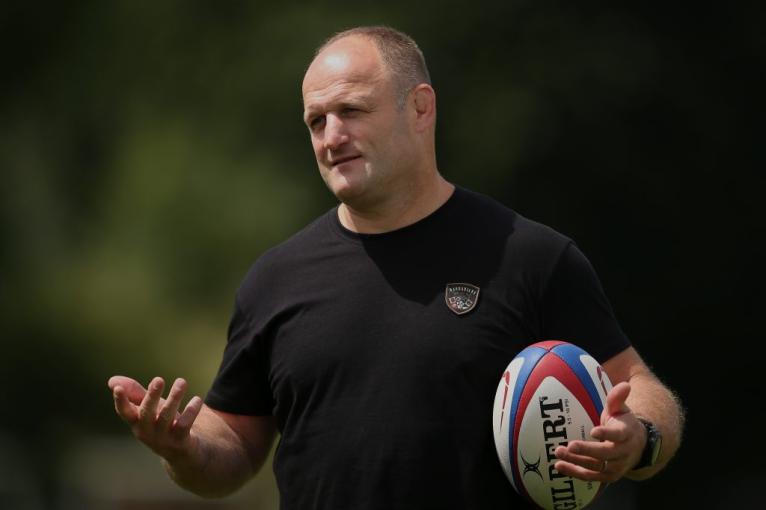There is no easy way of shifting the oppressive weight of an unresolved grudge – for France, the one left behind by defeat to South Africa on 15th October. Antoine Dupont may have moved on to the sevens programme, but the livid scar-tissue left by that loss in a World Cup quarter-final lingers.
As the man himself observed: “There is a lot of disappointment and frustration. When we watch the match again, there are probably things that will make us even more frustrated.
“I do not want to be a bad loser and moan about the refereeing. But I am not sure the level of refereeing was up to what was at stake today. That does not take anything away from the South Africans. They played a great game.”
When you leave the biggest tournament in the world under such a cloud, the weather tends to follow you for some time to come. How long those atmospheric conditions will last is anyone’s guess, but there has been little sign of the outlook changing in the first two rounds of the Six Nations.

Les Bleus are playing as if the national body of French rugby is still in shock – psychologically on the operating table, trying to twitch back into life. France lost decisively in Marseille to their closest rivals Ireland in the first round of the competition, and the close shave against Scotland at Murrayfield will have done little to allay the fears of the cognoscenti within the French war room. France could, and probably should, have lost that game with the final officiating decision of the match.
After the loss to Ireland, French scrum coach and a former monster of the middle in the front row, William Servat, wanted to pass off the result as a series of easy fixes.
“We worked a lot on details, particularly within our different units, without dwelling on the project in general,” he said. “After Ireland, we spent time together and we saw that the solutions were there. We know how to change all that. There is no negative pressure, just the desire to do well. We must use this match as a new experience.

“The Scotland match will be prepared with the scars of Ireland [in mind], but our group remains strong. We have a principle of trust in our players. We cannot sweep away everything we have put in place over several years, that would be a mistake.”
The game at Murrayfield showed in conclusive terms the fixes are not quite so simple for Dupont-less France. There is a lot of residual negative pressure from that World Cup exit still washing up on the shoreline of the French XV like psychic flotsam and jetsam, and the absence of their skipper and most inspirational player is only making it worse.
It can be summarised as a problem of attacking potential. Without Dupont, the Tricolores’ attack cannot function in the same way. During their triumphant advance to a Grand Slam in 2022 France scored 47% of their tries from kick and turnover returns. That was well above the tournament – and 2023 World Cup – average of 31%.
France uses the long kicking game as a weapon to seek out, and exploit the right opportunity to return with ball in hand. Les Bleus are patient in the kicking duels that often develop, waiting for the right moment to strike with lethal effect. Dupont was an integral part of that strategy as one member of a two- or three-man French backfield.
In this sequence from the same match against the Scots two years ago, France can play back off the kick from a position just outside their own 22, via their Toulousain backfield of Romain Ntamack [in the right half of the zone] and Dupont [on the left]. Dupont makes the initial bust, and that brings all of the ball-carrying and offloading ability out of big forwards such as Cyrille Baille, Julian Marchand and Paul Willemse on the following two phases.
The confidence to counter from long range instilled by the presence of Dupont, and to a lesser degree by Ntamack, has also allowed vampiric wing Damian Penaud to flourish. Witness the following counter-attacking riot incited by Ntamack and finished by Penaud, from the 2023 game against Ireland in Dublin.
With both Dupont and Ntamack from Stade Toulousain out of the equation, France cannot get the same productivity out of their twin replacements from Union Bordeaux-Bègles, Matthieu Jalibert and Maxime Lucu. That has had the domino effect of locking their new club-mate Penaud in his coffin, and changing the counter-attacking key from major to minor.
In their two games thus far, France have scored three tries starting from deep inside the opposition red zone, but only one try from outside the opposition 22, and none from their own half. Les Bleus have only engineered two clean breaks out of 43 kick return opportunities, while giving up 10 turnovers in the process.
The backfield duo of Jalibert and full-back Thomas Ramos won few kicking duels against either James Lowe in the Ireland game, or debutant full-back Harry Paterson in Edinburgh.
In Marseille, what starts as an even contest between Ramos and Lowe, both on the respective edges of their own 22m lines, finishes with the Leinster left wing outkicking the French pair and forcing a short exit from Jalibert which gives up an attacking lineout position to the men in green only 30m from the French line.
A week later, the Bordeaux 10 kicks across field to Paterson, only to find himself frantically scuttling to make up ground to field the reply. The kick forces a knock forward and that is another turnover scrum in prime field position for France’s opponents.
The underlying virus which spread to Jalibert two passes away first incubated with the pass from his club partner Lucu at the base of the previous ruck.

Lucu is without doubt one of best thinking scrum-halves in the Top 14, but he absolutely cannot take on the same mantle as Dupont in the national side. Instead of challenging the first three defenders at ruck-side, he runs three steps backwards and away from them before shipping the ball on. Where France are static with the ball, Scotland are dynamic and advancing without it. Duhan van der Merwe has the comfort of knowing he can turn to support his full-back in the full knowledge the men inside him will eat up what little space is available to the French attackers before play ever gets to his side of the field.
That was the short-hand, this is the long-hand from the Ireland game.
Lucu’s tendency to run away from the first three Irish defenders nearest the ruck and towards his own first receiver takes all the wind out of the French kick return, ending in a muddled loop of midfield confusion and an easy pilfer at the breakdown for Andrew Porter.
When opponents see such tendencies in their pre-game preparation, they know they can write off Lucu as a running threat, even in desperate situations close to their own line.
France centre Gael Fickou has run a masterful line to straighten the attack, and the next decision at the tackle is Lucu’s. Whether offside or onside, it matters not: Van der Merwe knows he can safely take the gamble on scrum-half flicking the ball off the ground to someone else, and his bet is duly paid out. He would never have taken the same risk against Dupont.
The patient only began to show signs of life, a gnarled hand gripping the game’s sleeve and reaching hopefully towards resuscitation, when youthful Nolann Le Garrec from Racing 92 hopped off the pine to inject purpose on the pass, and menace around the fringes.

One step forward to the left to engage the attention of all three of Scotland’s short-side defenders, then zip the ball flat to Louis Bielle-Biarrey on the edge with the defensive recovery a step slow. That is all you need, to heave a new breath on the gurney and make Dupont-less life worthwhile once again.
The pain of an agonising loss to the eventual world champions is still preying on French hearts and minds, and the long look back is inhibiting glances towards the future of the game in the country. It is easy to say ‘move on’, but far harder to let the emotions of that bleak evening in Saint Denis find a resting place where they can be used for the positive.
The exhilaration of a countering game built ‘from the ends of the earth’ has all but disappeared, and Penaud’s opportunistic taste for the kill has vanished with it; in its place, a sombre, featureless deadlock, with none willing to charge across the intimidating no man’s land between statuesque receiver and motionless defenders, only ten metres distant.

In such circumstances, there must be a wish both France in particular, and the rugby community in general, gets to see what Le Garrec has to offer – right from the start, freed from the shackles of the bench: ‘Float like a butterfly, sting like a bee. Oh, rumble young man, rumble’.



Comments
Join free and tell us what you really think!
Sign up for free